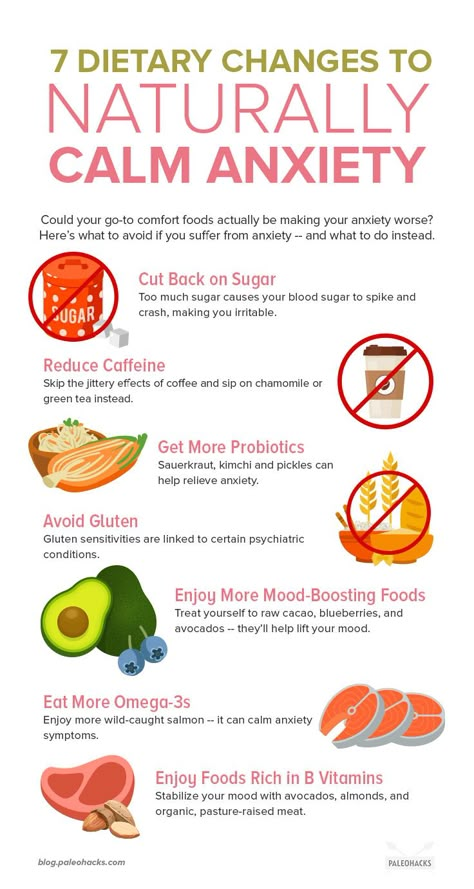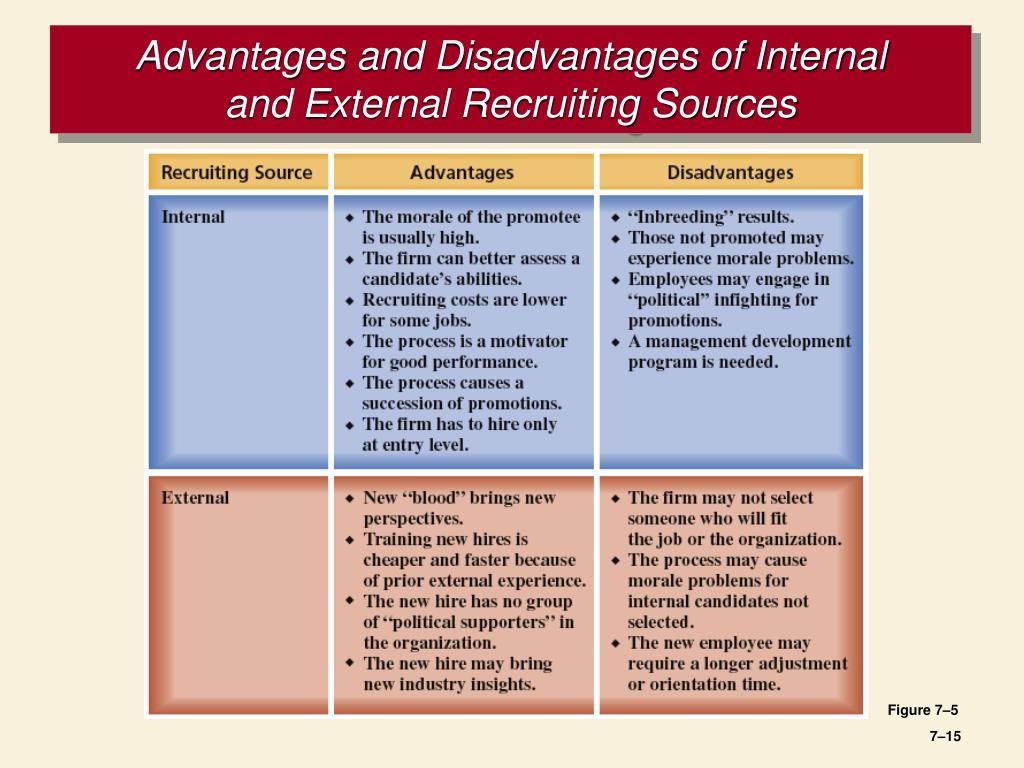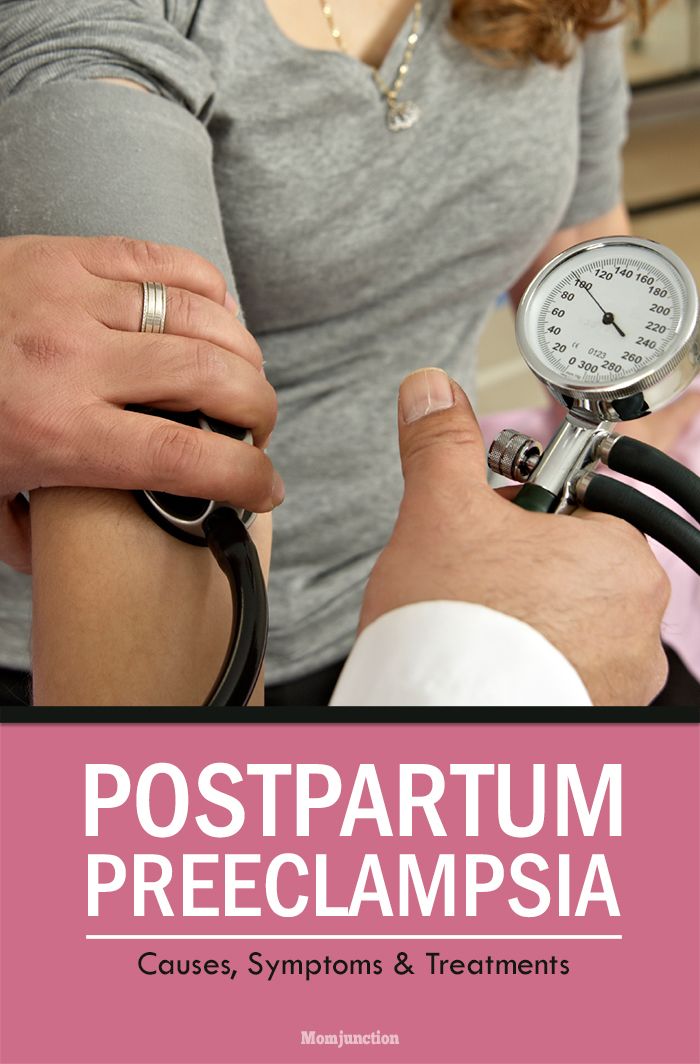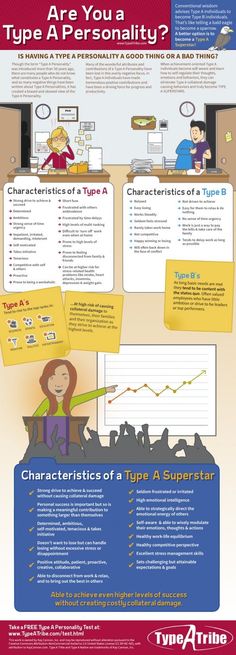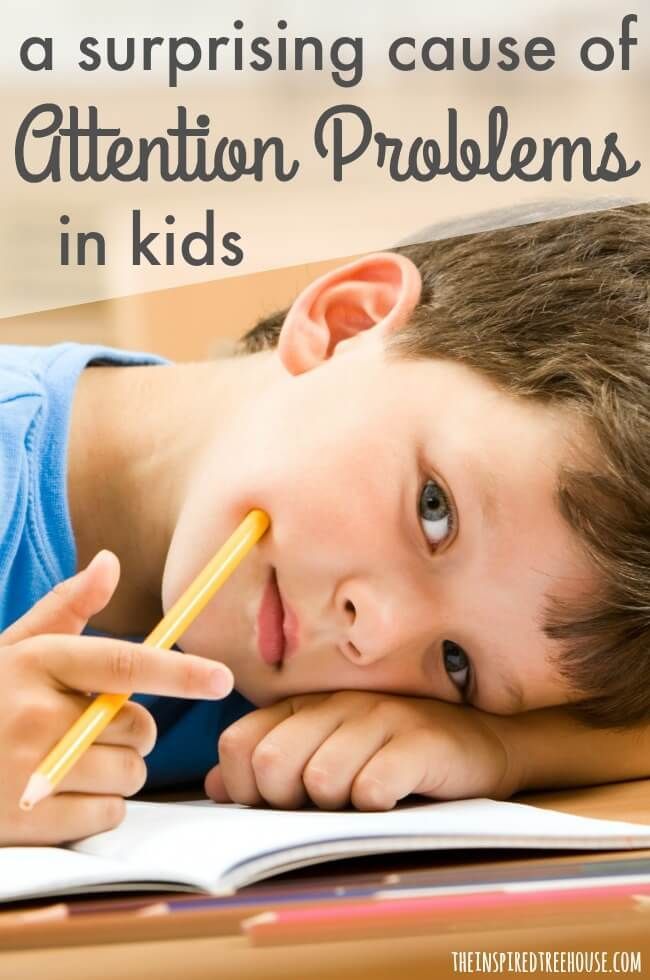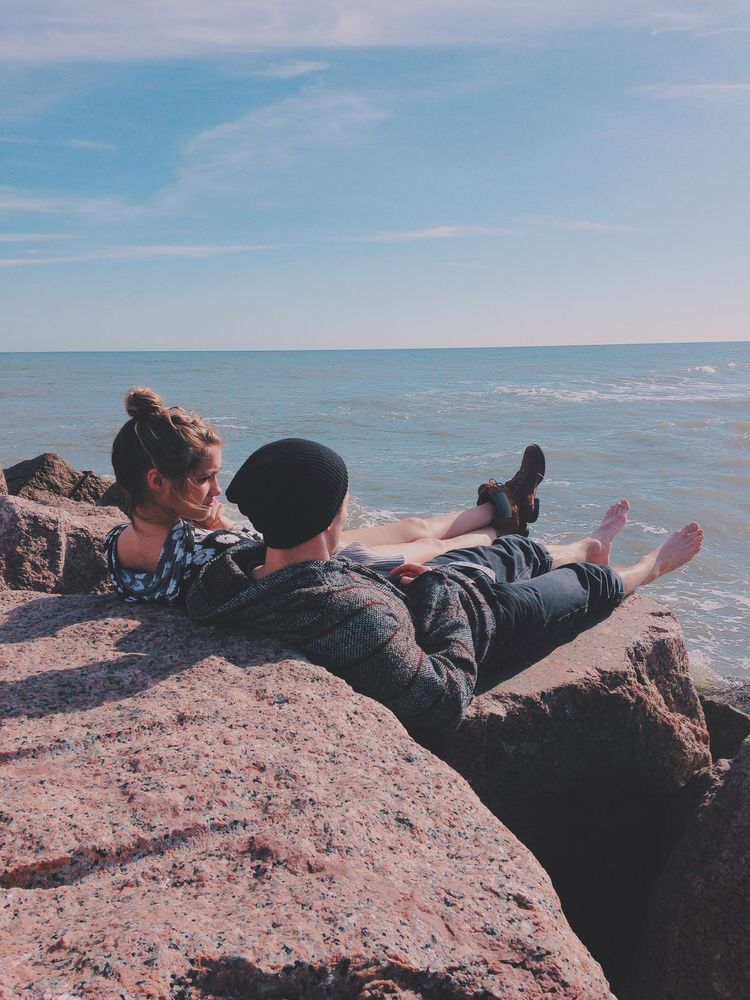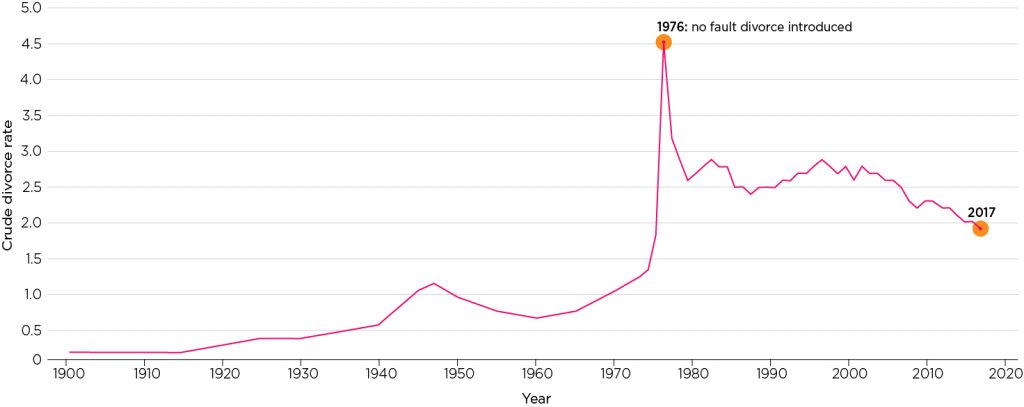Help with anxiety naturally
10 natural remedies for reducing anxiety and stress
Many people have chronic stress and anxiety. They face symptoms such as nervousness, agitation, tension, a racing heart, and chest pain.
In fact, anxiety is among the most common mental health issues. In the United States, more than 18 percent of adults are affected by anxiety disorders each year.
In some cases, another health condition, such as an overactive thyroid, can lead to an anxiety disorder. Getting an accurate diagnosis can ensure that a person receives the best treatment.
In this article, learn about a wide range of natural and home remedies that can help with stress and anxiety.
Natural remedies are generally safe to use alongside more conventional medical therapies.
However, alterations to the diet and some natural supplements can change the way antianxiety medications work, so it is essential to consult a doctor before trying these solutions. The doctor may also be able to recommend other natural remedies.
1. Exercise
Exercise is a great way to burn off anxious energy, and research tends to support this use.
For example, a 2015 review of 12 randomized controlled trials found that exercise may be a treatment for anxiety. However, the review cautioned that only research of higher quality could determine how effective it is.
Exercise may also help with anxiety caused by stressful circumstances. Results of a 2016 study, for example, suggest that exercise can benefit people with anxiety related to quitting smoking.
2. Meditation
Meditation can help to slow racing thoughts, making it easier to manage stress and anxiety. A wide range of meditation styles, including mindfulness and meditation during yoga, may help.
Mindfulness-based meditation is increasingly popular in therapy. A 2010 meta-analytic review suggests that it can be highly effective for people with disorders relating to mood and anxiety.
3. Relaxation exercises
Some people unconsciously tense the muscles and clench the jaw in response to anxiety.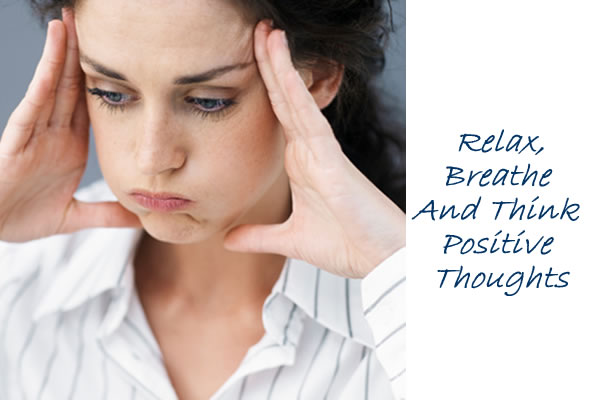 Progressive relaxation exercises can help.
Progressive relaxation exercises can help.
Try lying in a comfortable position and slowly constricting and relaxing each muscle group, beginning with the toes and working up to the shoulders and jaw.
4. Writing
Finding a way to express anxiety can make it feel more manageable.
Some research suggests that journaling and other forms of writing can help people to cope better with anxiety.
A 2016 study, for example, found that creative writing may help children and teens to manage anxiety.
5. Time management strategies
Some people feel anxious if they have too many commitments at once. These may involve family, work, and health-related activities. Having a plan in place for the next necessary action can help to keep this anxiety at bay.
Effective time management strategies can help people to focus on one task at a time. Book-based planners and online calendars can help, as can resisting the urge to multitask.
Some people find that breaking major projects down into manageable steps can help them to accomplish those tasks with less stress.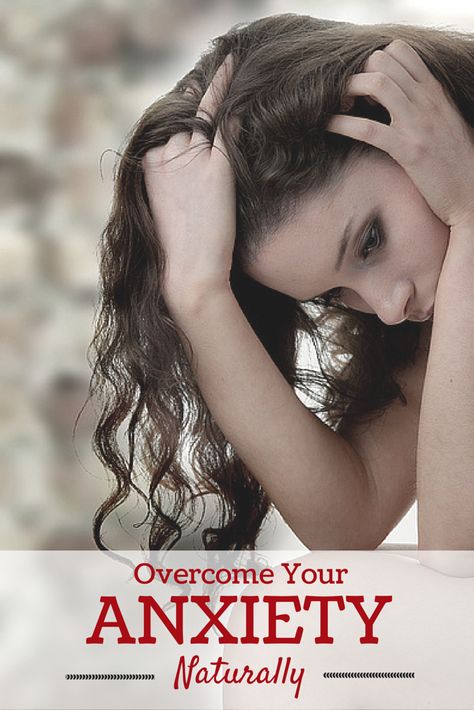
6. Aromatherapy
Smelling soothing plant oils can help to ease stress and anxiety. Certain scents work better for some people than others, so consider experimenting with various options.
Lavender may be especially helpful. A 2012 study tested the effects of aromatherapy with lavender on insomnia in 67 women aged 45–55. Results suggest that the aromatherapy may reduce the heart rate in the short term and help to ease sleep issues in the long term.
7. Cannabidiol oil
Cannabidiol (CBD) oil is a derivative of the cannabis, or marijuana, plant.
Unlike other forms of marijuana, CBD oil does not contain tetrahydrocannabinol, or THC, which is the substance that creates a “high.”
CBD oil is readily available without a prescription in many alternative healthcare shops. Preliminary research suggests that it has significant potential to reduce anxiety and panic.
In areas where medical marijuana is legal, doctors may also be able to prescribe the oil.
8. Herbal teas
Many herbal teas promise to help with anxiety and ease sleep.
Some people find the process of making and drinking tea soothing, but some teas may have a more direct effect on the brain that results in reduced anxiety.
Results of a small 2018 trial suggest that chamomile can alter levels of cortisol, a stress hormone.
9. Herbal supplements
Like herbal teas, many herbal supplements claim to reduce anxiety. However, little scientific evidence supports these claims.
It is vital to work with a doctor who is knowledgeable about herbal supplements and their potential interactions with other drugs.
10. Time with animals
Pets offer companionship, love, and support. Research published in 2018 confirmed that pets can be beneficial to people with a variety of mental health issues, including anxiety.
While many people prefer cats, dogs, and other small mammals, people with allergies will be pleased to learn that the pet does have to be furry to provide support.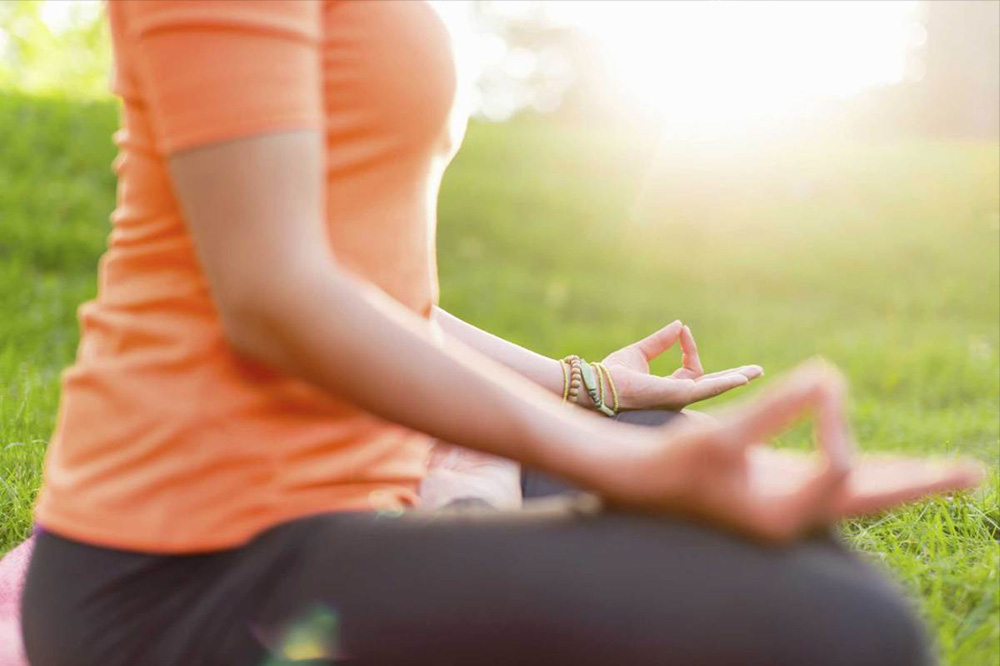
A 2015 study found that caring for crickets could improve psychological health in older people.
Spending time with animals can also reduce anxiety and stress associated with trauma. Results of a 2015 systematic review suggest that grooming and spending time with horses can alleviate some of these effects.
Share on PinterestTherapy may help to treat chronic anxiety.
Anxiety that is chronic or interferes with a person’s ability to function warrants treatment.
When there is no underlying medical condition, such as a thyroid problem, therapy is the most popular form of treatment.
Therapy can help a person to understand what triggers their anxiety. It can also help with making positive lifestyle changes and working through trauma.
One of the most effective therapies for anxiety is called cognitive behavioral therapy (CBT). The goal is to help a person understand how their thoughts affect their emotions and behavior and to replace those reactions with positive or constructive alternatives.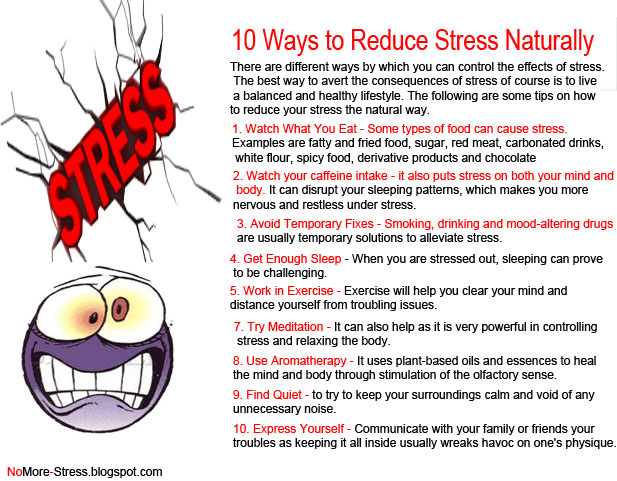
CBT can help with generalized anxiety and anxiety relating to a specific issue, such as work or an instance of trauma.
Medication can also help a person to manage chronic anxiety. A doctor may prescribe medications in any of the following groups:
- antianxiety drugs called benzodiazepines, including Xanax and Valium
- antidepressants called selective serotonin reuptake inhibitors, including Prozac
- sleeping medications, if anxiety interferes with sleep
People should follow the doctor’s instructions when using these drugs, as they can have severe and possibly life threatening adverse effects.
Natural anxiety remedies can replace or complement traditional treatments.
Untreated anxiety can get worse and cause more stress in a person’s life. However, anxiety is highly treatable with therapy, natural remedies, lifestyle changes, and medications.
A person may need to try several combinations of therapies and remedies before finding one that works.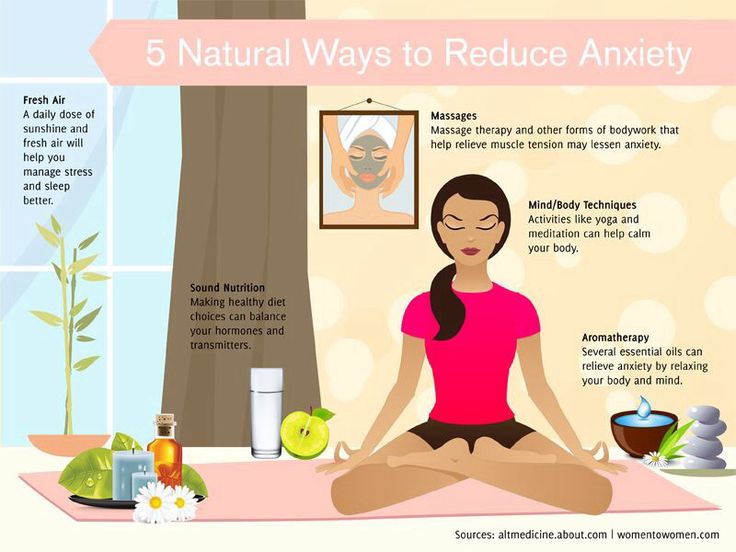 A doctor can help a person to determine which options are best.
A doctor can help a person to determine which options are best.
Read the article in Spanish.
Natural Remedies for Anxiety: 10 Ideas
Anxiety is your body’s natural response to stress. It’s a feeling of fear or worry that could be caused by a combination of factors that researchers believe range from genetics to environmental to brain chemistry.
Some common symptoms of anxiety include:
- increased heart rate
- rapid breathing
- restlessness
- trouble concentrating
However, it’s important to note that anxiety can present itself in different ways for different people. While one person may experience a butterfly feeling in their stomach, another might have panic attacks, nightmares, or painful thoughts.
With that being said, there’s a difference between everyday anxiety and anxiety disorders. Feeling anxious about something new or stressful is one thing, but when it gets to an uncontrollable or excessive point and starts to affect your quality of life, it could be a disorder.
Some anxiety disorders include:
- panic disorder
- post-traumatic stress disorder (PTSD)
- obsessive-compulsive disorder (OCD)
- separation anxiety
- illness anxiety
- phobia
- generalized anxiety disorder (GAD)
- social anxiety disorder
Anxiety can be treated in a variety of ways. One common treatment option is cognitive behavioral therapy (CBT), which helps provide people with tools to cope with anxiety when it occurs.
There are also certain medications, like antidepressants and sedatives, that work to balance brain chemistry and prevent episodes of anxiety. They may even ward off the most severe symptoms.
If you’re looking to go a more natural route, though, there are little and big ways you can help combat anxiety.
You can make adjustments to habits, like exercise, sleep, and diet. You can also try something totally new, like aromatherapy or meditation. No matter what your lifestyle demands, there’s a natural way to help reduce anxiety for everyone.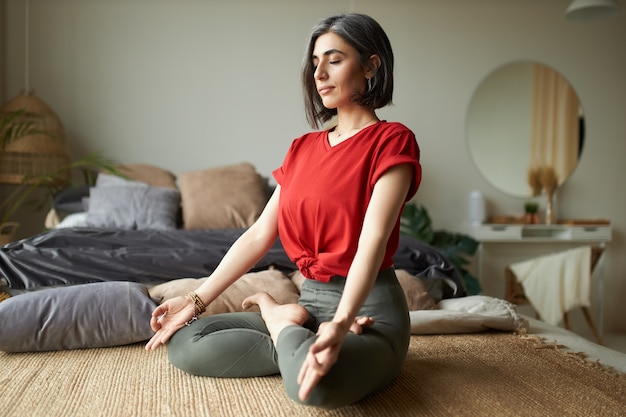
1. Stay active
Regular exercise isn’t just about physical health — it can be a huge help to your mental health, as well.
A 2013 study found that people with anxiety disorders who reported a high level of physical activity were better protected against developing anxiety symptoms.
This could be for a variety of reasons. Exercise can divert your attention away from something that’s making you anxious.
Getting your heart rate up also changes the brain chemistry to create more space for anti-anxiety neurochemicals, like:
- serotonin
- gamma-aminobutyric acid (GABA)
- brain-derived neurotrophic factor (BDNF)
- endocannabinoids
According to the American Psychological Association (APA), regular exercise leads to an enhancement of concentration and willpower, which can help certain anxiety symptoms.
When it comes to what type of exercise, this is more of a personal preference. If you’re looking to really get your heart rate up, something like a HIIT class (high-intensity interval training) or running is your best bet.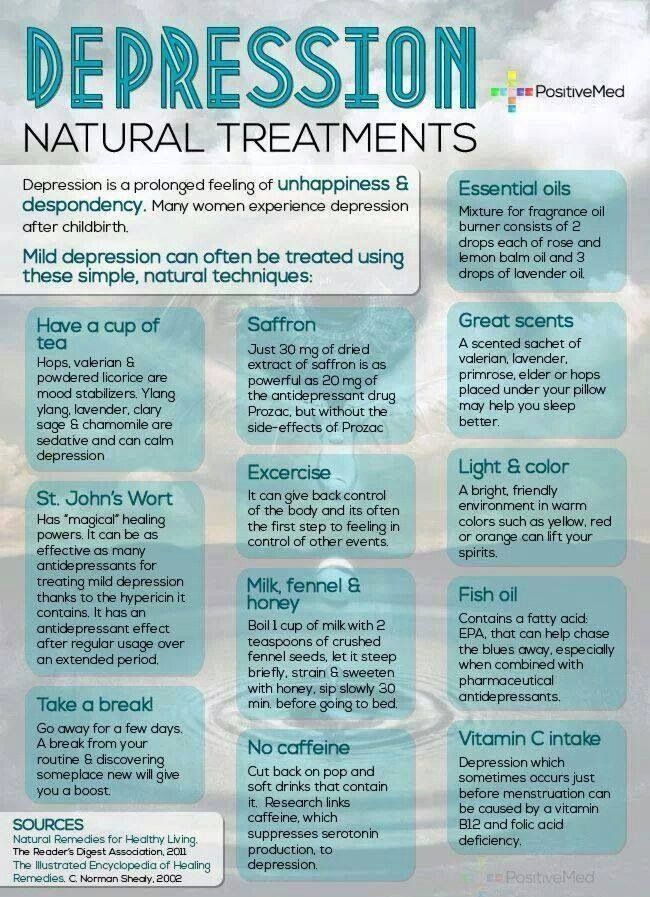
But if you’re looking to start off with something with a little lower impact, workouts, like Pilates and yoga, could also be just as beneficial for your mental health.
2. Steer clear of alcohol
Drinking alcohol may take the edge off at first, since it’s a natural sedative. However, research suggests there’s a link between anxiety and alcohol consumption, with anxiety disorders and alcohol use disorder (AUD) occurring hand-in-hand.
A 2017 review that looked at 63 different studies showed that decreasing alcohol intake can improve both anxiety and depression.
Heavy drinking can interfere with the balance of neurotransmitters, which can be responsible for positive mental health. This interference creates an imbalance that may lead to certain symptoms of anxiety.
Anxiety may temporarily increase in early sobriety but can improve in the long run.
Alcohol has also been shown to disrupt your body’s natural ability to sleep by interfering with sleep homeostasis.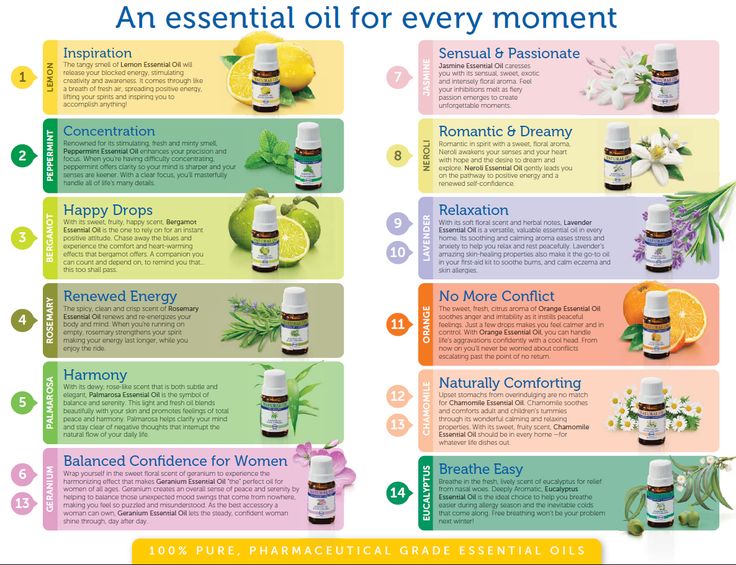 And as we’ll later point out, a good night’s sleep is incredibly helpful when combating anxiety.
And as we’ll later point out, a good night’s sleep is incredibly helpful when combating anxiety.
3. Consider quitting smoking cigarettes
Smokers often reach for a cigarette during stressful times. Yet, like drinking alcohol, taking a drag on a cigarette when you’re stressed is a quick fix that may worsen anxiety over time.
Research has shown that the earlier you start smoking in life, the higher your risk of developing an anxiety disorder later. Research also suggests nicotine and other chemicals in cigarette smoke alter pathways in the brain linked to anxiety.
If you’re looking to quit, there are lots of different ways you can get started. The Centers for Disease Control and Prevention (CDC) recommends finding a safe substitute for cigarettes, like toothpicks.
You can also take up habits that may distract you in order to create an environment that works for your smoke-free life. Additionally, you can make a plan with a support system who can provide everything from encouragement to distractions.
4. Limit caffeine intake
If you have chronic anxiety, caffeine is not your friend. Caffeine may cause nervousness and jitters, neither of which is good if you’re anxious.
Research has shown caffeine may cause or worsen anxiety disorders. It may also cause panic attacks in people with panic disorder. In some people, eliminating caffeine may significantly improve anxiety symptoms.
Similar to alcohol, caffeine and anxiety are often linked, due to caffeine’s ability to alter brain chemistry.
For example, a 2008 study showed that caffeine increases alertness by blocking the brain chemical adenosine, which is what makes you feel tired, while at the same time triggering the release of adrenalin.
With all this being said, a moderate intake of caffeine is safe for most people.
However, if you’re looking to cut back or completely cut out caffeine, you’ll want to start by slowly reducing the amount of caffeine you drink daily.
Start replacing these drinks with water to quench the thirst. This will not only satisfy your body’s need to drink a liquid, but it will also help flush caffeine from your body and keep you hydrated.
This will not only satisfy your body’s need to drink a liquid, but it will also help flush caffeine from your body and keep you hydrated.
Gradually reducing your caffeine over the course of a few weeks can help adjust the habit without the body going through withdrawal.
5. Prioritize getting a good night’s rest
Sleep has been proven time and time again to be an important part of good mental health.
Even though a 2012 survey found that nearly a third of adults get less than 6 hours of sleep a night, the CDC recommends that adults get 7 to 9 hours of sleep every day.
You can make sleep a priority by:
- only sleeping at night when you’re tired
- not reading or watching television in bed
- not using your phone, tablet, or computer in bed
- not tossing and turning in your bed or going to another room if you can’t sleep
- avoiding caffeine, large meals, and nicotine before bedtime
- keeping your room dark and cool
- writing down your worries before going to bed
- going to sleep at the same time each night
6.
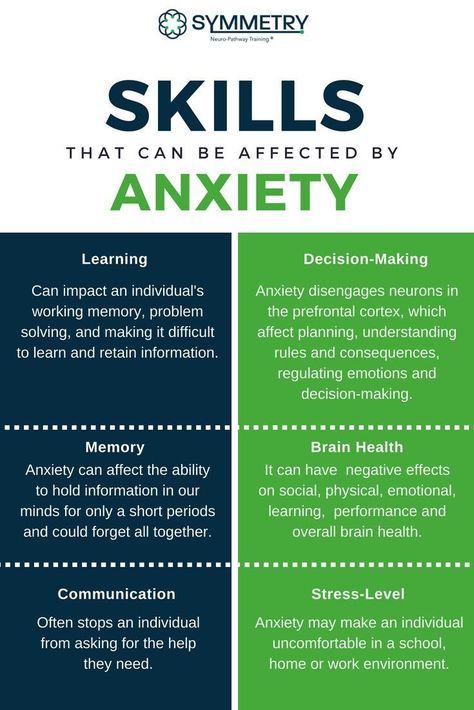 Meditate and practice mindfulness
Meditate and practice mindfulnessA main goal of meditation is full awareness of the present moment, which includes noticing all thoughts in a nonjudgmental way. This can lead to a sense of calm and contentment by increasing your ability to mindfully tolerate all thoughts and feelings.
Meditation is known to relieve stress and anxiety and is a primary facet of CBT.
Research from John Hopkins suggests 30 minutes of daily meditation may alleviate some anxiety symptoms and act as an antidepressant.
How to meditate
There are 9 popular types of meditation:
- mindfulness meditation
- spiritual meditation
- focused meditation
- movement meditation
- mantra meditation
- transcendental meditation
- progressive relaxation
- loving-kindness meditation
- visualization meditation
Mindfulness meditation is generally the most popular form. To mindfully meditate, you can close your eyes, breathe deeply, and pay attention to your thoughts as they pass through your mind.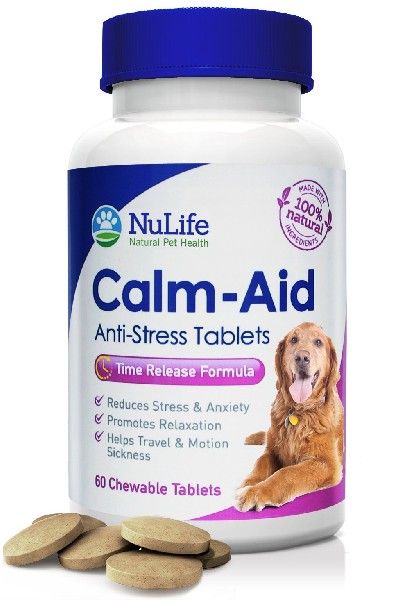 You don’t judge or become involved with them. Instead, you simply observe them and take note of any patterns.
You don’t judge or become involved with them. Instead, you simply observe them and take note of any patterns.
7. Eat a balanced diet
Low blood sugar levels, dehydration, or chemicals in processed foods, such as artificial flavorings, artificial coloring, and preservatives, may cause mood changes in some people. A high-sugar diet may also impact temperament.
If your anxiety worsens after eating, check your eating habits. Stay hydrated, eliminate processed foods, and eat a balanced diet rich in complex carbohydrates, fruits and vegetables, and lean proteins.
8. Practice deep breathing
Shallow, fast breathing is common with anxiety. It may lead to a fast heart rate, dizziness or lightheadedness, or even a panic attack.
Deep breathing exercises — the deliberate process of taking slow, even, deep breaths — can help restore normal breathing patterns and reduce anxiety.
9. Try aromatherapy
Aromatherapy is a holistic healing treatment that has been used by humans for thousands of years.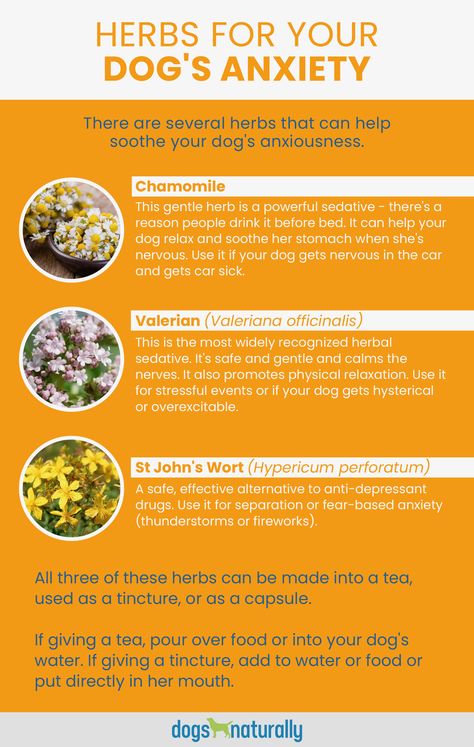 The practice uses natural plant extracts and essential oils to promote the health and well-being of the mind, body, and spirit. Its goal is to enhance both physical and emotional health.
The practice uses natural plant extracts and essential oils to promote the health and well-being of the mind, body, and spirit. Its goal is to enhance both physical and emotional health.
The essential oils created by the natural plant extracts may be inhaled directly or added to a warm bath or diffuser. Aromatherapy is suggested to:
- help you relax
- help you sleep
- boost mood
- reduce heart rate and blood pressure
Some essential oils believed to relieve anxiety are:
- bergamot
- lavender
- clary sage
- grapefruit
- ylang ylang
10. Drink chamomile tea
A cup of chamomile tea is a common home remedy to calm frayed nerves and promote sleep.
A 2014 study showed chamomile may also be a powerful ally against GAD. The study found people who took German chamomile capsules (220 milligrams up to five times daily) had a greater reduction in test scores that measure anxiety symptoms than those who were given a placebo.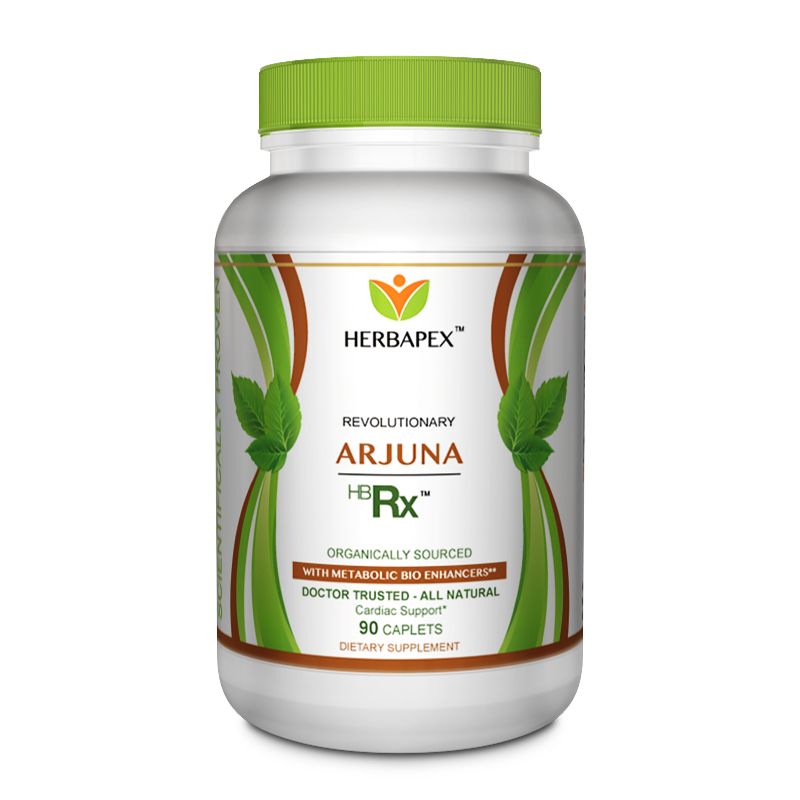
Another 2005 study found that chamomile extract helped sleep-disturbed rats fall asleep. Researchers believe that the tea may function like benzodiazepine, binding to benzodiazepine receptors and having benzodiazepine-like hypnotic activity.
Interested in other resources for mental health?
We’re here to help. Explore our evidence-driven reviews of top providers, products, and more to support your physical and emotional well-being.
If you’re feeling anxious, the above ideas may help calm you down.
Remember, home remedies may help ease anxiety, but they don’t replace professional help. Increased anxiety may require therapy or prescription medication. Talk with your doctor about your concerns.
Read this article in Spanish.
How to get rid of increased anxiety
Now we are everywhere faced with anxiety, impotence, fear and panic - these feelings paralyze and make it impossible to breathe.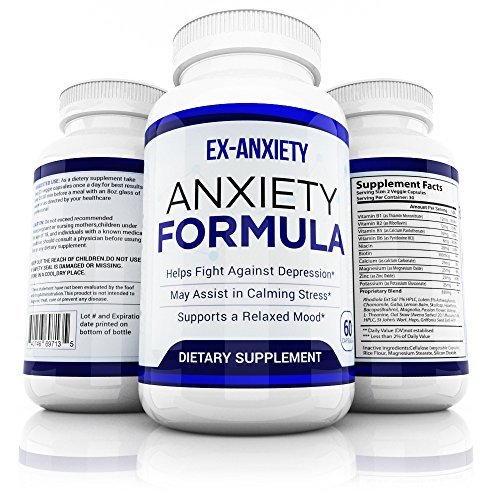 How to distinguish anxiety from increased anxiety, to react sensibly to circumstances and get rid of constant anxiety?
How to distinguish anxiety from increased anxiety, to react sensibly to circumstances and get rid of constant anxiety?
The feeling of anxiety itself is natural for a person: experiencing it, our body tells us about an approaching danger or a probable risk to life or health. Anxiety, tension, fear - these emotions are absolutely normal in a stressful situation, but at the same time, they, experienced regularly, can talk about more serious mental problems, including mental disorders.
Anxiety — this word can describe a complex of negative emotions, including stress, panic, fear, concern, and more — is normal and not dangerous for a person. These emotions can go into a state of anxiety disorder with their regularity and constancy: anxiety itself becomes, as it were, “chronic” due to genetic factors or environmental conditions and can be expressed in several forms.
One form of "chronic" anxiety is adaptive anxiety disorder, in which a person experiences stress and tension while trying to adjust to a stressful situation. Here we are talking about adaptation to a new, unfamiliar environment or living conditions: the slightest changes cause feelings of panic, confusion, anxiety. Generalized anxiety disorder often accompanies diagnosed depression: a constant feeling of anxiety is inevitably associated with an irrational fear for one's life, work, and future. Finally, experts single out an anxiety-phonic disorder accompanied by panic attacks: fear of a large crowd of people, fear of death, fear of a serious illness, the threat of which in reality may not even exist - only part of the anamnesis of people suffering from this form of disorder.
Here we are talking about adaptation to a new, unfamiliar environment or living conditions: the slightest changes cause feelings of panic, confusion, anxiety. Generalized anxiety disorder often accompanies diagnosed depression: a constant feeling of anxiety is inevitably associated with an irrational fear for one's life, work, and future. Finally, experts single out an anxiety-phonic disorder accompanied by panic attacks: fear of a large crowd of people, fear of death, fear of a serious illness, the threat of which in reality may not even exist - only part of the anamnesis of people suffering from this form of disorder.
According to the American Anxiety and Depression Association, about 40 million American adults suffer from an anxiety disorder. In Russia, there are 9 million such people. These are only diagnosed cases: the number of people who regularly experience anxiety, but do not turn to specialists, can be much higher not only in Russia, but throughout the world.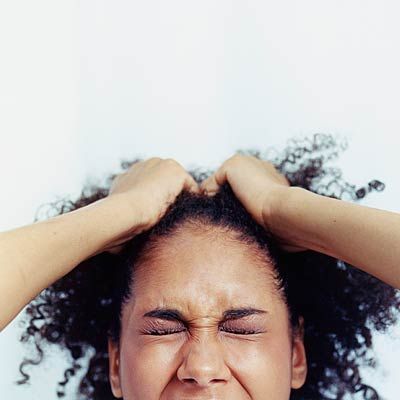
Increased Anxiety: Checklist and Problem Markers
American anxiety specialist Jill Weber in her book Be Calm divides the signs of anxiety into several criteria. They can be related to feelings, behavior or even thoughts of a person. The easiest way to define your own anxiety is precisely on the first point: emotions such as anger, irritability, sadness, feelings of hopelessness or despair can signal that you will experience anxiety. Feelings can be not only mental, but also physical: palpitations or indigestion, as well as dizziness are additional markers of anxiety that a person may experience.
Anxiety can also manifest itself in a person's behavior and negatively affect the quality of his life. Giving up favorite activities that used to bring pleasure, avoiding meeting people or important work events are just some of the examples of how anxiety can affect the daily routine of a person. Because of anxiety, a person feels that he is no longer able to perform daily activities - go to groceries or drive a car, and even do things that are unusual for him, says Weber. For example, in a stressful situation, he may refuse to communicate with friends, even if he is in the same room with them.
For example, in a stressful situation, he may refuse to communicate with friends, even if he is in the same room with them.
Thoughts are also an important set of signals that a person is experiencing anxiety. They can manifest themselves in irrational attitudes - for example, the conviction that if you don’t return home now and don’t check the iron, then the apartment will certainly burn down, winding yourself up (constant concentration on the negative aspects of the probable future), self-abasement (diffidence in yourself and your own abilities) .
Accompanied by stress and fear, the listed symptoms directly indicate that a person experiences precisely an increased feeling of anxiety - this condition can be dangerous, because it directly affects many areas of everyday life. A sign of excessive anxiety can also be regular modeling of situations like “What if ...”: a person tries to predict the worst scenario for the development of events, which may not even be related to reality, and, therefore, worsen his condition, because thoughts in this case are constantly focus only on a supposedly inevitable and bad future.
However, the mere fact that there is a feeling of anxiety does not indicate any problem: it is important that it is not only compatible with the criteria described by Weber, but that it is in itself distinguishable from fear. It, unlike anxiety, comes from “real threats from the outside world” and is rather momentary: a person understands what caused it, and realizes that, having found a way out of a stressful situation, fear will come to naught. Anxiety, on the other hand, is based on possible events, it is irrational and may have nothing to do with the surrounding reality, but it risks becoming a problem if a person overestimates the likely threats. “Anxiety is natural and is an adequate response if provoked by fear of a real danger. But if anxiety negatively affects your life and health: it develops into constant tension, anxiety, or avoidance of certain contacts or situations, then it ceases to be justified, ”the psychologist writes.
Related material
Causes of anxiety and ways to deal with it
Stanislav Raevsky, a psychoanalyst and creator of the Anti-Panic therapy app, shares feelings of anxiety and anxiety. So, according to him, anxiety informs a person about a danger or threat to life, health or property that must be avoided. Anxiety is more likely a character trait of people in whom this anxiety is more often manifested and more pronounced. “Anxiety can be stimulated by situations that only in fantasy are a danger, but in reality they do not carry such a threat,” Raevsky says.
So, according to him, anxiety informs a person about a danger or threat to life, health or property that must be avoided. Anxiety is more likely a character trait of people in whom this anxiety is more often manifested and more pronounced. “Anxiety can be stimulated by situations that only in fantasy are a danger, but in reality they do not carry such a threat,” Raevsky says.
It is useless to drive away anxiety from yourself: if you close the door to your consciousness, it will come through the window, in your dreams or other symptoms and will only develop relatives, health and property. “Anxiety triggers can be different, the fact of the threat of war and the fear of it can be very strong - this is how it is in all of us,” the psychoanalyst emphasizes.The media not only increase anxiety, but also exploit it. “Our psyche is so arranged that it is something terrible, disturbing that attracts us most of all. We are automatically included in this stronger than in some kind of sexual stimulus or food.
We are interested in what can scare, so people cannot take their eyes off the conditional accident, the modern news feed consists of what exploits anxiety, what makes your anxiety turn on, ”says Raevsky.
“It is useless to drive anxiety away from yourself: if you close the door to your consciousness, it will come through the window, in your dreams or other symptoms, and will only develop. It’s just pointless to drive her away - it’s best to go to a psychologist, ”the specialist notes. However, in some cases, a person can overcome anxiety on their own, and Raevsky offers some tips for those who want to cope with this feeling on their own.
- When dealing with anxiety, you do not need to calm yourself down. This rarely works out, so it's better, on the contrary, to imagine the worst thing that can happen, understand the consequences of this and accept them. If you are afraid that the current situation will hit your well-being, you need to think about how you can cope with this blow.
By imagining a terrible situation and living it, we do not chase away anxiety, but, on the contrary, we accept it.
- We worry not only with the head, but also with the body, so it is important to learn to relax and be aware of your breathing. It determines how much we worry. We breathe often - anxiety is present, we breathe evenly and calmly - it becomes less.
Raevsky and his fellow psychologists posted detailed instructions to help cope with anxiety in the Antipanika app. Breathwork will help you deal with panic, anxiety, and emotional stress, and experts suggest the following ways:0005
- through breath holding: slow inhalation - delay for 7 seconds - slow exit;
— by counting: while inhaling, count to yourself from one to four, repeat the same count while holding your breath and exhaling;
- through slow breathing: inhale slowly, exhale slowly, then hold for 7 seconds and repeat the steps.

Panic attack during anxiety is an absolutely normal and safe reaction of the body: you should not be afraid of it. It is important to remind yourself of this during such an attack: you need to say to yourself that the onset attack is not dangerous for your health, it will not last forever and will end in 20-30 minutes. When panicking, a person begins to breathe rapidly, so it will be effective to try to slow down breathing so that the blood is not oversaturated with oxygen and this does not lead to dizziness or numbness of the skin. After the attack, the psychologist recommends trying to analyze your emotions, trying to understand what exactly causes your fear, how rational it is, whether it can be realized right now - this will help you understand that what a person is afraid of will not happen at this very moment. It is important to write down the thoughts that are spinning in the victim’s head at this moment in order to analyze them again later.
Experts from the American psychological resource Mayo Clinic Health System also give their advice to those who suffer from anxiety.
So, in order to defeat the regular feeling of anxiety, or at least reduce its severity, experts suggest:
- increase physical activity - create a new habit of playing sports on a daily basis;
- give up cigarettes or caffeinated drinks as they increase anxiety together with nicotine;
- isolate triggers - study what situations and events become the starting point of experiences, and write them down along with the emotions that the person experienced. It is best to deal with stress itself together with a psychologist who will select an individual way for the client to deal with anxiety.
The American Depression and Anxiety Association has similar recommendations. So, psychologists suggest openly expressing your emotions to relatives and friends, and not hiding them. In addition, when feeling anxious, you need to try to accept the fact that a person cannot control absolutely everything, and the main thing that he can do is to focus on himself and his own emotions.
Breathing practices or counting from 1 to 10 or 20 can help with this - it will also restore breathing and reduce the frequency of heart beats.
Five Steps to Cope with Exam Anxiety – News – HSE for Your Own – National Research University Higher School of Economics circumstances to which we adapt, anxiety can rise. CPC psychologist Dina Zafesova shared some tips on how to deal with this.
Each of us at least once faced with anxiety on the eve of some significant event - before a speech, an answer at a seminar, an exam, at an interview, when talking with someone we like, etc. Often this causes a variety of unpleasant sensations .
We experience anxiety quite often in our lives, but we rarely think that it is completely natural and normal. Anxiety arises in situations where we need to orient ourselves, gain understanding and support, it indicates the significance of the event, helps us see our needs and prepare to overcome difficulties.
In this situation, it is important to understand what exactly is happening to us, to accept and help ourselves in this.
If we mark something inside as abnormal, bad, then, as a result, we try to suppress it in ourselves. This behavior does not help us deal with anxiety. It is important to recognize that what is happening to you is normal. This carries some important information for you, tells you what to do in this situation.
In anxiety, our attention shifts from the present to the past or future. We remember a bad experience, regret something, scold ourselves, think “what if I were at that moment ...”. We draw gloomy pictures of the development of future events in our imagination, we worry that something undesirable for us will happen that does not fit into the desired scenario.
Support is lost, self-confidence is lost, doubts arise, feelings that some kind of threat is approaching. We can hardly stand uncertainty - we are unsettled by the inability to predict how and how the disturbing experience will end. There is a feeling of loss of control, the inability to influence what scares.
Thoughts either disappear altogether, or spin in the same circle. Sometimes we can't even figure out why we're anxious, and sometimes we know exactly why we're worried.
Anxiety cannot disappear completely: normally, this condition disappears only when the stress factor disappears. The main goal is to help yourself endure this state and reduce anxiety as much as possible.
How to cope with anxiety
1. Notice that you are in anxiety and direct your attention to it. You need to tell yourself that this is normal - this is your condition, which indicates something that you need to help yourself with.
2. Ask yourself what exactly do you feel when you are anxious? What are your feelings, thoughts, feelings, what do you start doing? Gather information about yourself to identify help points.
3. Identify what exactly you are worried about? What are the causes of your condition?
For example, you have to take an exam remotely.
You worry about how everything will go, how you will look, whether you can answer all the questions. Perhaps you feel that the channels of information that are important to you about how the teacher reacts to you will be limited - his facial expressions, postures, gestures, non-verbal reactions. Or you know that you have gaps in knowledge, you missed classes and are afraid that the teacher will be dissatisfied. In such a situation, one can feel anxiety, fear, guilt, regret, disappointment, insecurity. Thoughts revolve around the fact that you will not get the desired grade or fail. So you start to procrastinate, avoid preparation, get irritated.
Also read
“If you want to lie on the bed – lie well”
Why do we procrastinate and how to deal with this feeling – says CPC psychologist Dina Zafesova
4. Identify help points for yourself and write them down.
For example:
New circumstances for me.
Anxiety about what is not done well, expectation of criticism.
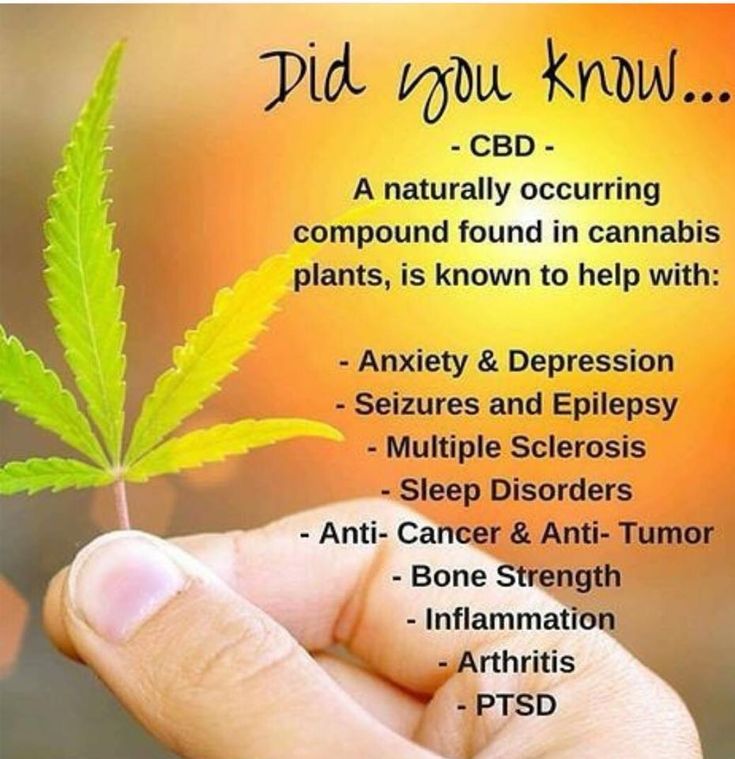
Physical state - bodily sensations, tension in the body.
Terrible pictures of developments.
A state of uncertainty, self-doubt, lack of support and loss of control, fear.
Inability to prepare better due to my condition.
5. Think about what will help you manage or reduce your anxiety on each item.
In the new circumstances, we need to get guidance, increase the predictability of the situation. You can ask others, read descriptions, organize preliminary training re-enactments of the event. Your goal is to get as much information as possible about the alarm event from all possible sources and actions.
When we know we have done something wrong, we may feel guilty. Here we take responsibility and look for redemption scenarios: admitting mistakes and doing something to make up for the harm. This may manifest itself in agreeing and accepting a well-deserved downgrade, or in an effort to correct the situation, if possible.
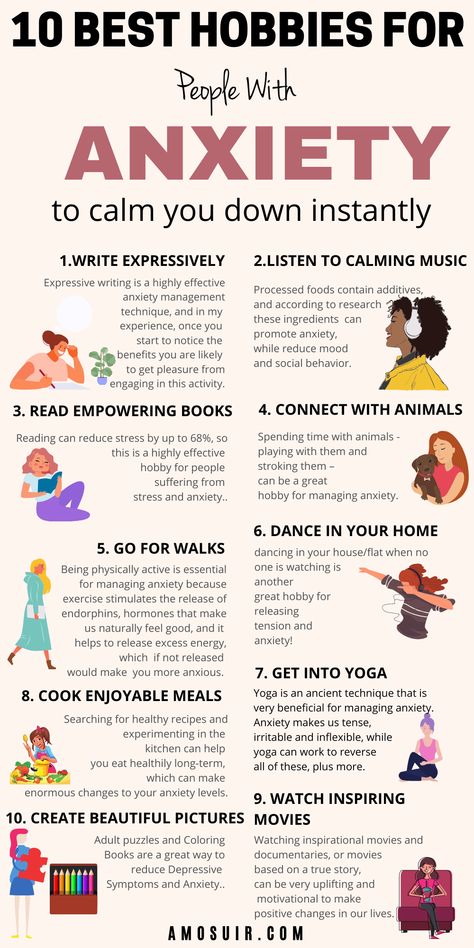
Physical exercises to relieve anxiety
In anxiety, ways to help yourself through the body are very effective, since our psychological state is connected with our physical state. Anxiety is a state of stress that activates the production of certain hormones in the body. By influencing their content in the body, you can help yourself.
Find physical activities that include stretching and relaxation. Your goal is to learn how to relieve yourself of stress, relax. Breathing exercises with an emphasis on exhaling or holding the breath are very helpful in reducing the oxygen content in the blood and, as a result, the production of adrenaline, which supports anxiety.
You can perform, for example, such an exercise. Sit on a chair, close your eyes, bring your attention to your breath, inhale for 3 counts, exhale for 7. Simultaneously with inhalation, squeeze your toes tightly, hold this state during inhalation, then relax them as you exhale.
You will feel the tension leaving your feet. Repeat the action on the muscles of the calves, thighs, buttocks, arms, abs and other parts of the body.
Worried thoughts appear in anxiety. Switch yourself from these thoughts to something else, bring yourself back to the present moment. For example, through directing your attention to what surrounds you.
Perform the following exercise: catch your eye on any object: a bag, zipper, phone, banner, etc. You need to concentrate your attention on this thing, examine it in detail, note the color, shape, composition, think about how it ended up in this place. Devote at least 5 minutes to this activity.
You can also use slow counting up to 10, 100, 1000, consecutive subtraction from one number to another.
Anxiety is a loss of control. Since everything around is uncertain, it becomes impossible to control. Take back control over what you can control: set some specific achievable goals for yourself, schedule your tasks, write down what you need to do in simple and understandable steps, break complex tasks into concrete actions, think over an action plan in case your fears begin to be justified.
